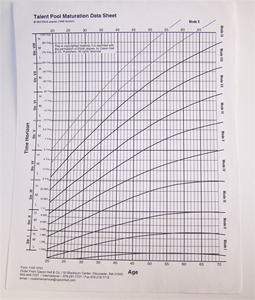“If you are not going to let me hope,” Monica protested, “then explain to me how I got this job? When I was promoted to manager, I had never been a manager before. If the interview had only centered around my prior role as a supervisor, then how did the interviewer make the judgment that I had the potential to be a manager?”
“Do you think the interviewer only had hope for you in this manager role?” I asked. “Monica, I watched you, in your role as a supervisor for three years. I sat in on the debriefing after you were interviewed for your current role as a manager. Do you think that decision was made based on hope?”
“Not if you were in the room,” Monica admitted. “But, then how did you know I had the potential to be a manager if I had never been a manager before?”
“Okay, let’s step through some questions. As a supervisor, do you think you were operating as effectively as someone in the top half of a supervisor’s role or the bottom half?”
Monica smiled politely, nodding, “Top.”
“And in the top half, were you operating as effectively as someone in the top third, middle third or bottom third?”
Monica continued to shake her head. “Top,” she repeated.
“What is the evidence for that?” I pressed.
“You always want evidence,” Monica replied. “My projects always came in on time, within the specs from the customer and always within budget.”
“And why did your projects always come in on time? Did you always get the easy projects or were there problems?”
“There are always problems, but you know, 90 percent of the obstacles are predictable. For example, permits are always a problem. And permits are outside my control, it’s a government agency that processes the permits. But I took the time to get to know the inspectors down at the building department. I know it is not part of my job description and sometimes they are not the easiest people to get acquainted with, but I also know it’s important.”
“So, you took the time to go beyond prescribed duties in your role as a supervisor. You anticipated obstacles that might get in the way and created alternate paths, to solve problems that might occur,” I recounted.
“Well, you know, if you don’t have a relationship with the building inspectors, then you don’t know what criteria they are using to get your project approved. And if you don’t know what they are looking for, your project can get stuck. It’s easy to blame it on the building department, but if your project is 18 months in scope, thirty days might mean the difference between an on-time finish or having to pay liquidated damages for coming in late. There is a lot of risk.”
“So, when we decided that you had the potential to be a manager, it is because we could see evidence of that potential beyond your role as a supervisor.”
